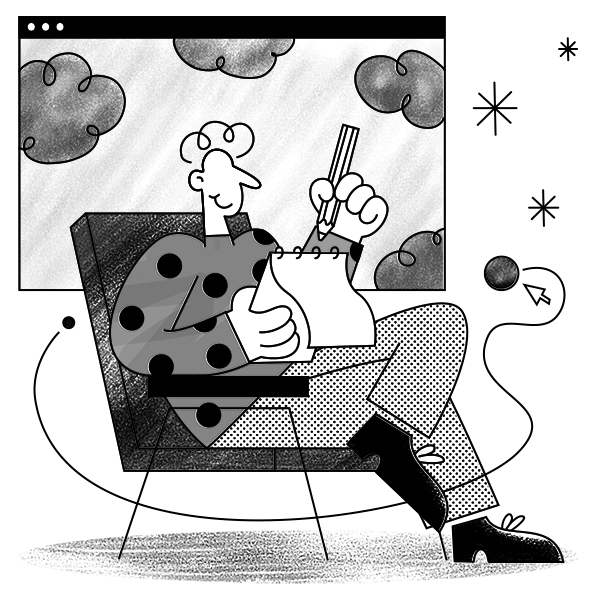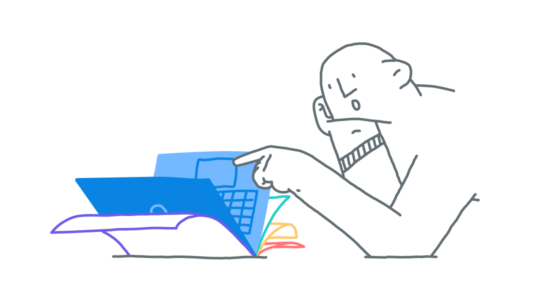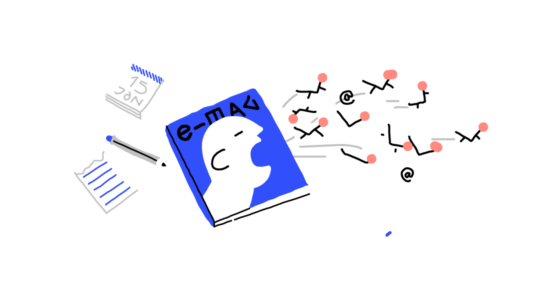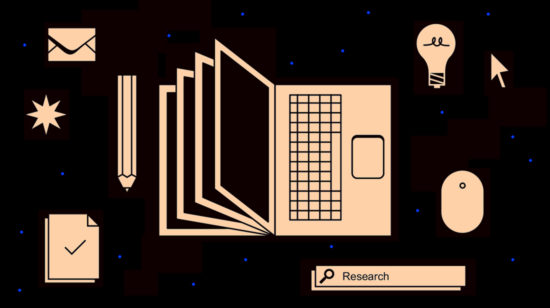In an ideal world, your office would be the place where you’re most productive, and where you get all your work done on time. But we do not live in an ideal world. If anything, it’s been more of a complete opposite in the last year or so.
The offices have moved into our homes and into our private lives, and although Microsoft’s recent study suggests that the average number of hours an employee worked in a week has increased, it also shows that, in the long term, innovation and creativity will suffer.
So how do we stay productive when working from home? There is no one-size-fits-all solution.
Therefore, we have compiled a list of tried and tested tips on how to stay on top of the game.
Tip #1 Create a Dedicated Workspace
The living room couch may be a tempting option, but do yourself a favor and avoid chillaxing with your laptop while trying to get some work done. The thing is, the human brain is programmed to get into “work mode” once it sees an office. That’s why it would be best for you to set up an office at home.

Now, unless you live in a 5-bedroom apartment or a 3,000-sq feet house, this might be a bit tricky. Try to create a dedicated workspace, even if it’s only a desk. Place it away from the TV, pets, or the kids’ room. It would be best to keep the noise at a minimum, but since you are at home, no one can guarantee it will be dead silent.
You will also need some storage space – you don’t want to run out of supplies when you’re in the zone. Here’s an article with 35 desk organization ideas.
Tip #2 Establish a Daily Routine
You’ve probably heard this many times before. And it might seem like setting up a solid daily routine is a breeze – but it’s not. It might even be hard for some people. Whether you’ve lived a chaotic life until today or you have some experience with routine work, we’ve got some great advice for you.
- Make a list: Write down everything that needs to be or should be done daily. Create one list for both personal and professional tasks. Note that this is not a to-do list, you’re just trying to get everything down on paper. If you find it hard to remember everything, take notes during the day. If you want to include small details like brushing your teeth, write it down. It’ll help you get to the bigger picture.
- Once you have a comprehensive picture of what needs to be done during the day, you can decide what, when, and how you’ll do your work or run errands.
- Be consistent with time. The time you need to get things done may vary in the first couple of weeks, but the longer you do it, the better you’ll get. Also, try to do things at the same time every day. For example, go to the gym at the same time every day, or make/have breakfast at the same time. Recurring tasks are much easier to plan.
- Think about how you can structure your day: If you’re an early bird, you are most efficient early in the morning and you want to get harder tasks done earlier in the day. If you’re a night owl, you’ll be more comfortable getting things done towards the end of the day. It is all up to you.
Set small goals for yourself. Trying to change your entire life in a day is fighting a losing battle. Start with two or three goals at a time. After a couple of days, add one or two tasks. You’ll be more comfortable and you won’t feel overwhelmed.
Tip #3 Dress For Success
When you put on your pajamas, your brain will think it’s time for bed. And how can we blame it? Most of us have had the chance to “go to work” in our pajamas in the last year, but should we make it a habit? No. No one claims your productivity will suffer, but we are pretty sure it impacts mental health. You don’t have to wear a suit every day, but don’t let yourself get into the habit of wearing pajamas at work. Jeans and a T-shirt will do just fine.
Tip #4 No Multitasking
Multitasking is almost impossible to avoid when working from home. You’re tempted to take on as many tasks as you can, thinking you’ll get the work done much faster. Unfortunately, even though the skill of multitasking was considered essential back in the day, it’s a really, really bad thing for our brains. Research at Stanford University found that “in addition to slowing you down, multitasking lowers your IQ” and it’s not something you can easily grasp. Our advice is obvious: try not to multitask. Respond to an email, send a text, make a phone call – but one after another, not all at once.
Tip #5 Take a break – Nap or Stretch

As we’ve all realized by now, working from home is not as easy as one might think. There are too many distractions coupled with the desire to achieve more than in our usual workspace. That causes a lot of stress and tension. Taking a break can benefit your physical and mental health as well as boost your immune system.
Now, don’t feel discouraged: there’s no need to do a full CrossFit workout. Walking around your room while you’re thinking about how you can finish your tasks, or having a stretch, or a quick yoga session, or a plank, will do the trick. And if you don’t feel like exercising, you can take a quick nap or, to use a different name you may have heard of, a “power nap”. They help restore your energy and increase productivity. You can find some essential tips on power napping in this Web MD article on Power Naps.
Tip #6 Declutter Your Desk & Your Mind
There have been numerous research studies on how clutter affects us and the results are surprising. Did you know that clutter:
- Can make us less productive?
- Can affect our sleep, anxiety, and ability to focus?
- Can influence our emotions and relationships with others?
- Can reduce cognitive memory?
- Can prevent us from falling asleep?
- Can cause weight gain and even diabetes?

If you’re a busy person, it’s easy to fall behind on regular cleaning, and clutter soon takes over your working space (and our living space). It’s perfectly fine not to have everything 100% clean all the time, so here’s what you can do about it:
“Spring clean” your workspace every couple of months. Don’t pile up pieces of paper, broken paperclips or other stationery, or junk. In other words, chuck away everything you don’t use.
Do your daily cleaning at the end of the day. This cleaning should take no longer than five minutes. Put everything back into place, organize your notes and prepare a clean sheet for the next day. You can wipe your desk every couple of days. Doing this every day will prevent you from getting into a “clutter” mode and will, ultimately, make you happier and more productive.
Final Thoughts
We’re well aware of the fact that you won’t magically turn into a productive person after reading our article – and that’s fine. Everyone has their own pace. We simply shared what we feel are the most important tips for anyone struggling with productivity.
If you’re just starting out, pick one or two tips we shared and start small. Remember, it takes anywhere from 18 to 254 days to form a habit – and we’ve got your back.



